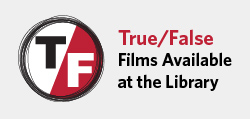For many generations, menstruation was a topic you didn’t publicly discuss, even though it’s a major part of life for roughly half the population. But in the past few years, socials norms have shifted. There’s a growing dialogue, with terms such as “menstrual equity” and “period poverty” making headlines. A number of U.S. cities now provide free period products in their public schools and the restrooms of public buildings, considering them in the same category as toilet paper and hand soap.
Jennifer Weiss-Wolf is an activist who works internationally to remove the stigma from periods and to increase access to needed supplies. Her book, “Periods Gone Public, Taking a Stand for Menstrual Equity” is written largely in memoir style, talking about her own efforts to ensure that nobody is held back in life because of menstruation. She discusses the challenges faced by students who miss school due to lack of hygiene products, the difficulties posed by homelessness, the lack of provision in many prisons, and the dilemmas for those with marginal incomes who are faced time and again with choosing between necessities — tampons or food, for instance. Weiss-Wolf advocates for an end to taxes on period products, as well as the stocking of free supplies in all schools, places of employment, and public bathrooms..
“Period Power: a Manifesto for the Menstrual Movement” by Nadya Okamoto covers a lot of the same ground, but is aimed at a younger audience and provides more information to help readers understand what’s going on with their bodies, as well as what their options are. Okamoto began writing the book as soon as she graduated from high school in 2016. She includes a section on recognizing the challenges of menstruation for folks who are trans or nonbinary, explaining this is why period products should be placed even in restrooms marked “Men.”
For every adolescent who feels ill prepared for the onset of menstruation, there’s a person decades older who feels the same way about the changes occurring as that phase of life comes to an end. For many of us, the mothers or aunts we could turn to in our teen years have passed on by the time we reach menopause. In “Flash Count Diary: Menopause and the Vindication of Natural LIfe, ” Darcy Steinke says, “I knew so much more going into both menstruation and pregnancy than I did going into menopause.” As her body began to change, Steinke kept a literal diary of her hot flashes and other phenomena, such as insomnia and heart palpitations. She points out, though, that these symptoms are not universal, and also shares the positive aspects she found in aging out of menstrual cycles, including an increased sense of self confidence. Her book has a loose structure, often with a stream of consciousness feel, as she muses both on her personal journey and society at large.
“The Menopause Maze” by Megan A. Arroll is a compendium of practical information for anyone trying to decide on the best personal course to take in regards to menopause and its many potential symptoms. The subtitle promises a “Complete Guide to Conventional, Complementary, and Self Help Options.” As such, she covers the risks and benefits of various hormone replacement therapies, strategies for better sleep, when to be concerned about those heart rhythms, diet, exercise, environmental influences, meditation…the whole gamut.


